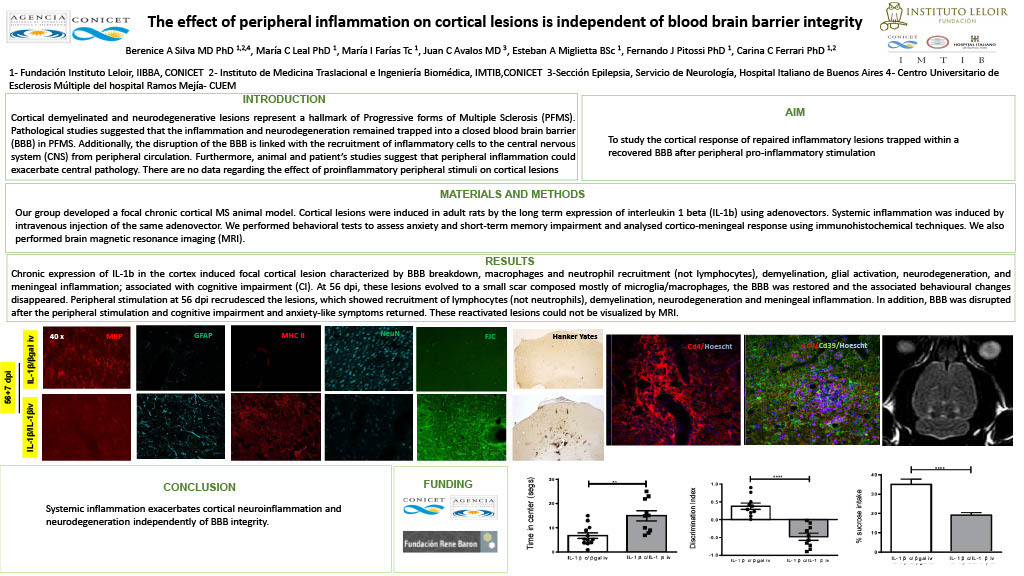The effect of peripheral inflammation on cortical lesions is independent of blood brain barrier integrity
Abstract
Background:
Cortical demyelinated and neurodegenerative lesions represent a hallmark of Progressive forms of Multiple Sclerosis (PFMS). Pathological studies suggested that the inflammation and neurodegeneration remained trapped into a closed blood brain barrier (BBB) in PFMS. Additionally, the disruption of the BBB is linked with the recruitment of inflammatory cells to the central nervous system (CNS) from peripheral circulation. Furthermore, animal and patient’s studies suggest that peripheral inflammation could exacerbate central pathology. There are no data regarding the effect of proinflammatory peripheral stimuli on cortical lesions Objectives: To study the cortical response of repaired inflammatory lesions trapped within a recovered BBB after peripheral pro-inflammatory stimulation
Methods:
Our group developed a focal chronic cortical MS animal model. Cortical lesions were induced in adult rats by the long term expression of interleukin 1 beta (IL-1b) using adenovectors. Systemic inflammation was induced by intravenous injection of the same adenovector. We performed behavioral tests to assess anxiety and short-term memory impairment and analysed cortico-meningeal response using immunohistochemical techniques. We also performed brain magnetic resonance imaging (MRI).
Results:
Chronic expression of IL-1b in the cortex induced focal cortical lesion characterized by BBB breakdown, macrophages and neutrophil recruitment (not lymphocytes), demyelination, glial activation, neurodegeneration, and meningeal inflammation; associated with cognitive impairment (CI). At 56 dpi, these lesions evolved to a small scar composed mostly of microglia/macrophages, the BBB was restored and the associated behavioural changes disappeared. Peripheral stimulation at 56 dpi recrudesced the lesions, which showed recruitment of lymphocytes (not neutrophils), demyelination, neurodegeneration and meningeal inflammation. In addition, BBB was disrupted after the peripheral stimulation and cognitive impairment and anxiety-like symptoms returned. These reactivated lesions could not be visualized by MRI.
Conclusion:
Systemic inflammation exacerbates cortical neuroinflammation and neurodegeneration independently of BBB integrity.

